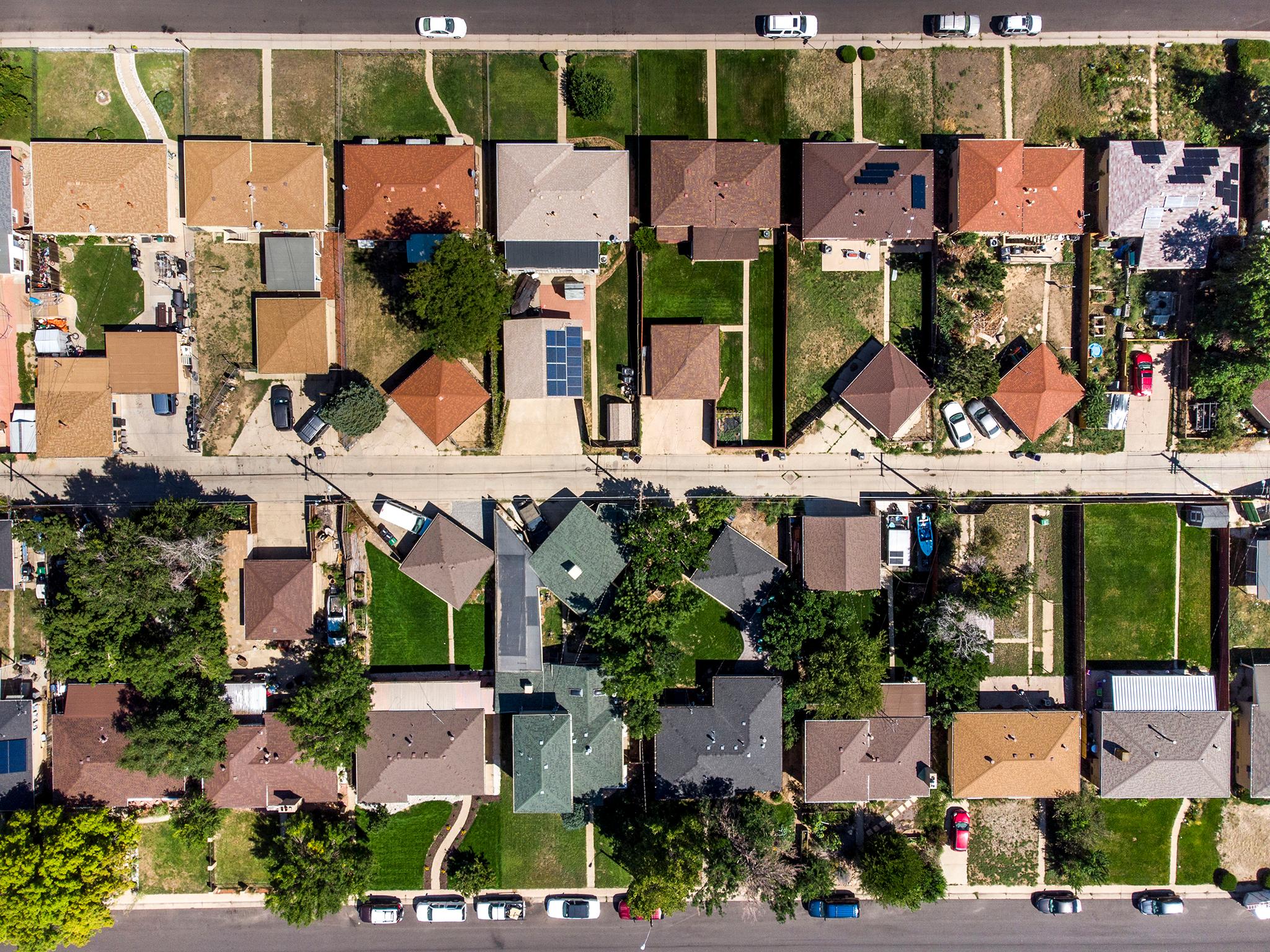
Under a new air quality proposal, stores across the Front Range would be prohibited from stocking gas-powered leaf blowers and lawnmowers starting in 2025.
Further regulations would limit the use of the equipment during the summer ozone season. Starting in 2025, public entities, like schools and cities, would be banned from running the equipment from June through August under the proposal. Commercial landscaping businesses would face the same restrictions in 2026.
The Regional Air Quality Council, the primary air quality planning agency for the Front Range and a financial supporter of CPR News, approved the potential regulations Friday. It now heads to the state's Air Quality Control Commission for a final vote later this year.
The proposed regulations, however, would not forbid individuals from using gas-powered chainsaws, lawnmowers, leaf blowers or power washers. The rules also wouldn’t apply statewide, so stores outside the nine-county Front Range region could continue to sell the products.
Mike Silverstein, the executive director of the regional air council, told board members his staff worked with local governments and businesses to develop the rules over the last few months. They targeted smaller gas-powered equipment because viable electric alternatives are already widely available.
"There’s just more work to be done in bringing in the larger riding equipment on small tractors," Silverstein said. “At this point, we’re focused on the smallest, dirtiest equipment.”
Those new rules are meant to help bring metro Denver into compliance with federal ozone standards.
Last year, the U.S. Environmental Protection Agency reclassified the region a "severe" violator for failing to meet health standards for the dangerous lung irritant for more than two decades.
Ozone concentrations along the Front Range have hovered just above 80 parts per billion in the last few years. Colorado air regulators now hope to reach the EPA's standard of 75 parts per billion by 2027. A board of scientists advising the federal government has called for an even tougher standard between 55 to 60 parts per billion. Policymakers have no plans to reach those lower levels in the foreseeable future.
State estimates suggest gas-powered lawn equipment is a significant factor in the region’s ozone problems. If the machines were suddenly eliminated, one recent set of regional air council models suggests average ozone concentrations would drop by 2.5 parts per billion. That’s about equal to removing about one-third of all vehicles along the Front Range.
Lawn equipment plays such an outsize role because it is often powered by smaller two-stroke engines that burn a mixture of gasoline and oil. The exhaust contains large amounts of nitrogen oxides and hydrocarbons, chemicals that react to form ozone on hot, sunny days.
In fact, the California Air Resource Board estimates running a commercial leaf blower for a single hour emits as much smog-forming pollution as driving a new car from Los Angeles to Denver — a trip of about 1,100 miles.
In response, California air regulators plan to enact their own ban on the sale of gas-powered lawnmowers and leaf blowers starting next year.
Out of 14 board members in attendance, all approved the regulations — with one critical exception.
Michael Ogletree, the director of the Air Pollution Control Division and the state’s top air regulator, voted against the proposal, saying it neglected to consider the durability of electric lawn equipment. He is further concerned that the deadlines for public entities and lawn care companies do not align with upcoming state discounts on electric lawn care tools.
Since Ogletree’s division would ultimately enforce the proposed rules on behalf of Gov. Jared Polis, his objections could be influential ahead of the final vote later this year.
Several mayors and county commissions on the board voted in favor of the proposal but called for exceptions in the event of supply chain issues or other unforeseen circumstances. While Silverstein said the policy could be modified, he warned broad waivers could be an “open door” for governments and businesses to disregard the rules.
Kirsten Schatz, a clean air advocate for the Colorado Public Interest Research Group, said the vote remained a “good first step for the policy.”
“We need to take this to the state and demonstrate that our region is calling for this,” Schatz said. “It’s a sensible, strategic solution.”
Funding for public media is at stake. Stand up and support what you value today.








